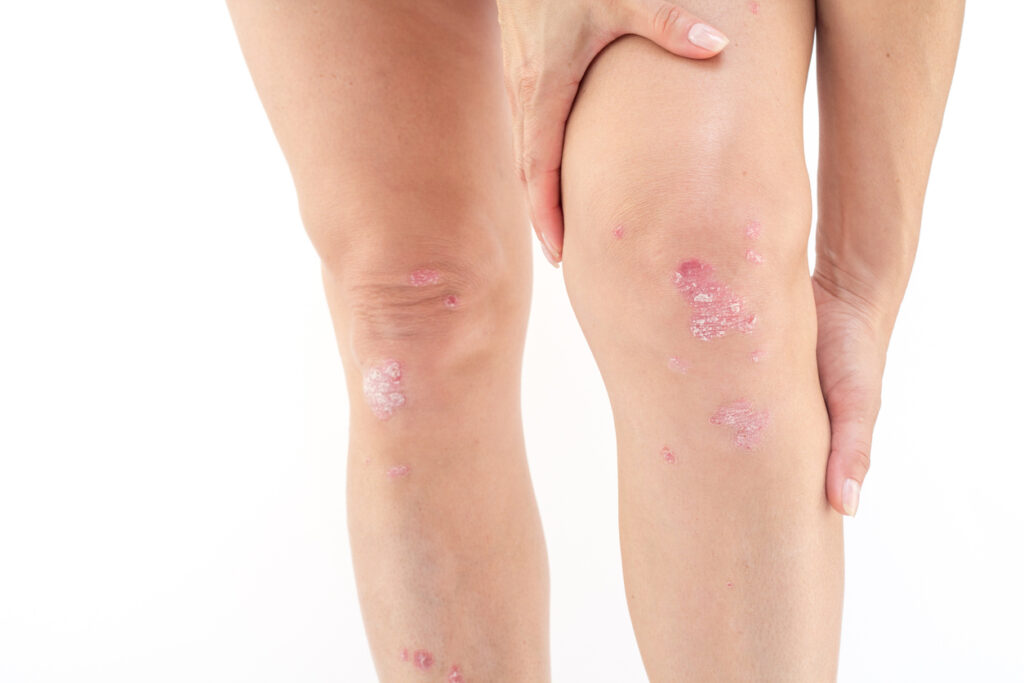New research suggests that interleukin (IL)-12/23 and IL-23 inhibitors reduce the incidence of progression to psoriatic arthritis (PsA) among people with psoriasis when compared to tumor necrosis factor inhibitors (TNFi) and IL-17 inhibitors.
The findings, which were presented at EULAR 2024 in Vienna, Austria, held in naïve and bio-experienced patients.
For the new retrospective study, researchers tapped into big data from a global network of electronic records of more than one million people with psoriasis to compare the incidence of new-onset PsA between those receiving a first- or second-line biologic for psoriasis. This included TNF inhibitors and biologics directed against IL-12, -23, -17, and 12/23. They compared the incidence of PsA in the different cohorts at five years and throughout the follow-up, using the first-line TNFi population as a comparator.
The risk of developing PsA during first-line treatment was 37% lower with an IL-12/23 inhibition (ustekinumab) and 39% lower with IL-23 inhibitors IL-23 (guselkumab, risankizumab and tildrakizumab) compared to TNFi at five years, the study showed. For those on second-line treatment, the risk was 32% lower with IL-12/23 inhibitorsand 31% lower with IL-23 inhibitors at three years than with a first-line TNFi. In both first- and second-line treatment, IL-23 inhibitors presented a 47% lower probability of developing PsA compared to IL-17 inhibitors at three and five years.


